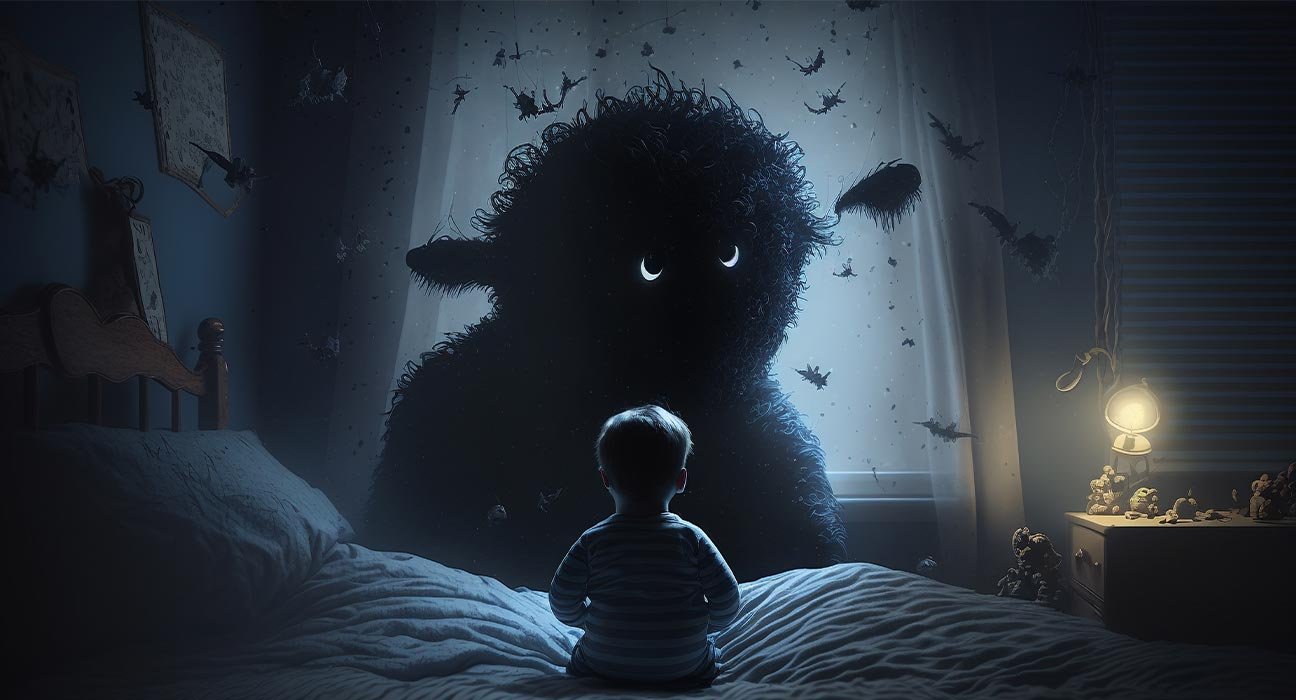One of the most complex components of sleep is dreaming. Dreams may be glorious and blissful but can also be frightful, dangerous, or stressful. A nightmare, an unpleasant dream that wakes you up is referred to as such. Even though having the occasional nightmare or terrible dream is common, for some people they regularly occur, interfering with their sleep and having an adverse effect on their waking lives as well. The first step to addressing the reasons for nightmares, beginning the proper therapy, and obtaining better sleep is understanding the distinctions between terrible dreams, and nightmare disorder.
Nightmare
Nightmares are frightening, disturbing, strange, or otherwise troublesome dreams that are extremely vivid. Rapid eye movement (REM) sleep, the phase of sleep linked to vivid dreaming, is when it happens more often. The second half of the night, when more time is spent in REM sleep, is when nightmares are most likely to occur.
It’s common to be intensely aware of what occurred in the dream when you wake up from a nightmare, and many individuals have feelings of angst or anxiety as a result. After waking up, one could also notice physical signs like increases in heart rate or perspiration.
Children between the ages of 3 and 6 may have their first nightmares, which tend to lessen by the time they reach 10. Girls seem to have nightmares more frequently during the adolescent and young adult years than do guys. Some individuals experience them as adults or their entire lives.
Though prevalent, nightmare disorder is somewhat uncommon. The term “nightmare disorder” refers to a condition in which dreams frequently occur, cause anxiety, interfere with sleep, impair everyday functioning, or instil a dread of falling asleep.
Night terror
Night terror sufferers act as though they are in anguish by writhing, shouting, and sometimes sleepwalking, in contrast to persons who have nightmares. While night terrors can affect adults, they most frequently afflict youngsters between the ages of 3 and 7.
The sleep stage before REM, sometimes referred to as deep sleep or slow wave sleep, is when night terrors happen. While some sleep terrors end in a matter of minutes, others can linger for up to 30 minutes. It might be challenging to wake up someone who is having one of these episodes. Usually, they have no recollection of the night terror when they finally wake up.
Nightmare disorder
A pattern of recurring, vivid, frightful dreams that significantly disturb the sufferer or hinder functioning is known as nightmare disorder. One sort of parasomnia, or atypical behavioural sleep patterns, is nightmare disorder.
The frequency of dreams determines the severity of nightmare disorder:
- Mild: On average, fewer than one nightmare every week.
- Moderate: More than one nightmare a week but fewer than every night.
- Severe: Every night.
Its duration may also change:
Chronic nightmare condition lasts no longer than one month.
The duration of subacute nightmare disorder is less than six months but at least one month.
The duration of a chronic nightmare problem is at least six months.
Nightmares frequently happen in the second portion of your REM (rapid eye movement) sleep cycle. Unlike sleep terrors, you recall nightmares when you wake up.
Your quality of life may be negatively impacted by this disease and your ability to sleep. Additionally, it may exacerbate underlying mental health issues like anxiety or depression.
Symptoms
- Daytime drowsiness
- A decline in mental and physical health
- Having trouble concentrating
- Obsession with the dreams during the day
- Reduced performance at work, school, or in social settings
- Greater dread and anxiety when awake
- Apprehension about sleeping at night
Causes
The likelihood of having nightmares can increase due to a variety of causes, including:
- Anxiety and tension
- Certain treatments and pharmaceuticals
- Withdrawal from some drugs
- Being sleep deprived
- Personal experience with nightmares
Treatment
Rare nightmares often don’t require any treatment, but persons with nightmare disorders may benefit from counselling and drugs. Treatments that lessen nightmares can improve your sleep and general health.
Always seek the supervision of a medical expert when receiving treatment for nightmares so they can choose the best course of action depending on the patient’s general health and the underlying reason for their nightmares.
The following are some of the most significant aspects of good sleep hygiene, particularly in relation to nightmares:
- Maintaining a regular sleeping pattern
- Avoiding alcohol and coffee
- Limiting digital exposure before bed
- Establishing a comfortable sleeping environment
An individual’s life can be greatly disrupted by nightmares. Consider visiting with a psychiatrist if you frequently have nightmares that are affecting your life in any manner. There are many more possible causes for your dreams. Furthermore, having any of these circumstances does not automatically guarantee that you will experience nightmares.
Every now and then having a nightmare is normal, but having one every day or even every week may be draining and upsetting. If you are experiencing nightmares on a regular basis, it may be time to consult a professional so you can come up with a successful treatment plan and regain control over your sleep.













Leave feedback about this